14 Common Engine Problems for John Deere S240 Mower
Contents
show
Poor Engine Performance
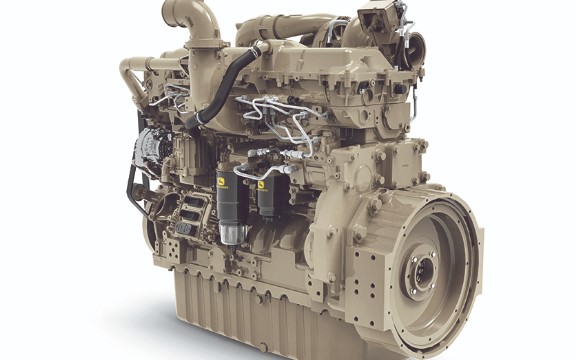
- When a dirt particle or old fuel is found in the fuel system, it’s important to replace the affected fuel with fresh stabilized fuel.
- Before suspecting machine problems, try obtaining this new fuel from another supplier as different vendors may blend their fuels differently and changing suppliers can often solve any performance-related issues.
- Fuel blended with either alcohol or ether can also cause gum and varnish deposits if stored for more than several weeks, so always make sure you get fresh fuel when possible.
- Regular service checks of your machine and its engine will help ensure that all parts are functioning properly and that there aren't any contaminants present in the system which could damage your machine over time - be proactive rather than reactive!

Engine Will Not Start
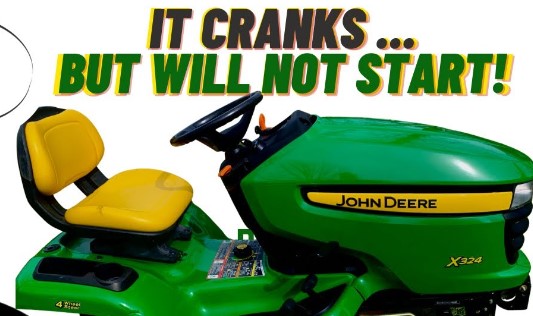
- The brake pedal must be pressed in order to safely engage the mower.
- If the spark plug wire is loose or disconnected, it will not start as intended.
- Using old fuel or incompatible fuels may cause issues with starting and running the mower.
- Make sure that the transmission is in forward mode before attempting to start the engine; reverse mode won't allow for proper operation of your lawnmower engine.
- A plugged fuel filter can prevent proper flow of gas into the carburetor, resulting in an inability to start and run properly on your lawnmower engine .
- Lawnmowers are designed with safety switches that must work correctly for safe operation – investigate if yours is defective and replace it if necessary .
- Ignition air gap should be adjusted according to manufacturer specifications for optimal performance of your lawnmower engine .
- Last but not least, electrical problems could also lead to a lack of power from your machine – consult the Electrical Troubleshooting Section if this might be an issue you're facing.

Engine Is Hard To Start
- When it comes to diagnosing and resolving engine issues, one of the most common causes are improper adjustments for choke cables.
- Plugging fuel filters can also be a source of engine trouble, as this will block necessary fuel from reaching the combustion chamber.
- Faulty spark plugs can cause further problems with getting the engine started and running properly, so it’s important to check them regularly and replace when needed.
- Stale or improper fuel is another frequent issue that needs attention; old gas left in an engine for too long will cause poor performance or even prevent proper starting altogether!
- Loose or corroded electrical connections lead to faulty electrical systems which can affect any number of components related to the ignition system—including spark plug wires and coils—so they must be checked periodically as well during maintenance inspections..
- Another problem area is selecting the right oil viscosity for your specific vehicle; if the wrong grade is used then excessive wear may occur due to lack of lubrication on critical parts inside your motor's cylinders!
- Ignition air gaps should also be adjusted correctly according to manufacturer specifications; this ensures adequate timing between cylinder firing events which helps maintain peak performance levels under varying load conditions throughout its life cycle!

Engine Runs Unevenly
- Faulty cooling fins can cause a range of problems in an engine, from overheating to stalling altogether.
- Loose electrical connections can lead to poor performance and potential damage to the motor or even the vehicle itself if not addressed immediately.
- If your choke or throttle cable is sticking, it could prevent your engine from getting enough fuel and air, resulting in power loss and decreased efficiency.
- Fuel lines can become clogged with sediment over time; this restricts the flow of fuel into the engine, leading to diminished performance and possible damage due to inadequate lubrication levels.
- Stale or dirty fuel will also reduce performance until its replaced with fresh gasoline that meets manufacturer’s specifications for octane rating and content of additives such as detergents and anti-knock agents .
- Air cleaner elements should be checked regularly for blockages as these may prevent clean air from entering the carburetor, causing poor combustion results
Engine Misses Under Load
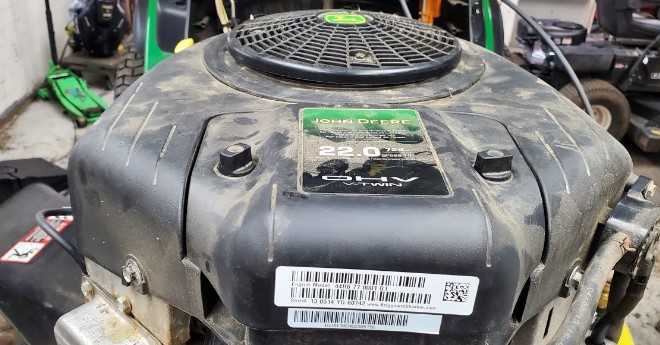
- Faulty spark plugs can cause a variety of engine issues, including reduced performance and difficulty starting the vehicle.
- Stale or dirty fuel can lead to poor combustion and difficulty with idling, as well as an increase in emissions from the exhaust system.
- A plugged fuel filter restricts the flow of fuel to the engine, resulting in reduced power output and decreased efficiency.
- If you experience any of these symptoms, it's important to have your spark plug, fuel filter and other components checked by a qualified technician as soon possible in order to prevent further damage to your vehicle’s engine system.
- Be sure to replace any faulty parts immediately for optimal performance and safety on the road!

Engine Vapor Locks
- A plugged fuel tank vent can be a major cause of poor engine performance and increased fuel consumption.
- Dirt in the fuel filter can restrict flow, causing your engine to starve for fuel, resulting in decreased power output or even stalling of the engine when you accelerate.
- Cooling fins that are plugged can cause dangerous levels of heat buildup inside your engine, leading to premature wear on internal components and potential failure if left unchecked.
- Loose hose connections at either the fuel filter or the fuel pump could allow air into the system, preventing proper operation and potentially leading to expensive repairs down the line if not fixed quickly and correctly..
- Regularly inspecting these areas as part of regular vehicle maintenance is essential for ensuring optimal performance from your car's motor and avoiding costly damage in future repair bills
Engine Overheats
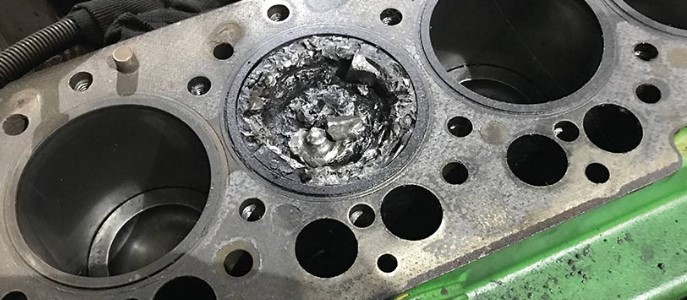
- Engine air intake screens can become plugged with dirt, debris, and other materials that restrict airflow to the engine and cause it to overheat.
- Cooling fins on engines can also become plugged due to a buildup of dirt or debris preventing proper cooling of the engine’s components.
- Engine oil levels should remain within certain parameters in order for an engine to perform at its optimal level; if too low it will not lubricate internal parts properly which could result in damage or failure; if too high it can lead to overheating issues as well as sludge buildup on internal components.
- If an engine is operated for prolonged periods at slow idle speeds this can increase the chance of deposits forming on cylinder walls and piston rings as well as reducing fuel efficiency due to incomplete combustion taking place inside the cylinders leading to increased emissions output from the vehicle's exhaust system.
- Regular maintenance of your vehicle's engine is essential in order for it operate efficiently without any major problems arising, so be sure to follow your manufacturer's recommended servicing schedule which includes checking all fluid levels, inspecting air intake systems, and ensuring proper operation of cooling fans or radiators when applicable
Engine Will Not Idle
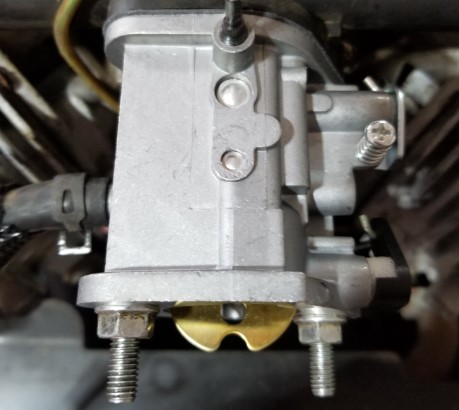
- Failing to Gap the Spark Plug Correctly: One of the most common spark plug issues for a small engine is failing to gap the spark plug correctly. When this happens, it can cause the engine to misfire and run poorly.
- Faulty Spark Plug: A faulty spark plug may not be able to generate enough current or voltage in order for your engine’s combustion cycle to occur properly. This can lead to decreased performance and efficiency as well as increased emissions from your small engine.
- Operator Raising Off The Seat: If an operator raises off of their seat while operating a vehicle equipped with a small motor, they are likely reducing air flow and restricting oxygen delivery, which reduces power output on many types of motors including those used on lawn mowers, ATVs, snowmobiles, etc.. As a result of reduced air flow and oxygen delivery, performance will suffer significantly until the operator returns back into their seat fully seated during operation.
Engine Knocks
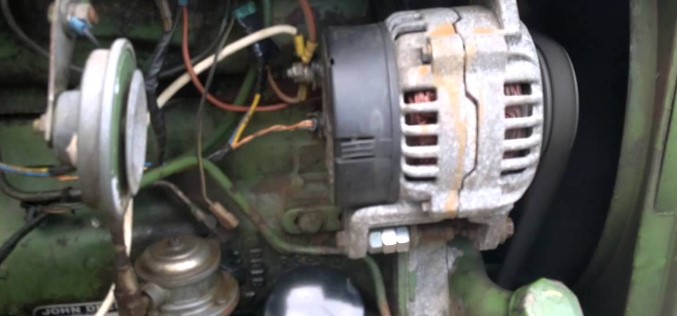
- Stale or low octane fuel can lead to engine problems and decreased performance due to a lack of the necessary combustible power needed for a smooth-running engine.
- An engine that is overloaded with too much weight or strain can begin to run rough, stutter, and lose power as the components become strained from operating above their normal levels.
- Low engine speed can be caused by an incorrect air fuel ratio in the combustion chamber or an issue with one of the belts associated with turning the crankshaft at its correct rate of revolutions per minute (RPM).
- Oil level low is another common cause of reduced performance and increased wear on components throughout your vehicle's drivetrain system. Regularly checking your oil level will help ensure that all parts are getting lubricated properly which helps maintain peak performance while reducing wear over time
Engine Stops Or Misses When Operating On Hillsides
- Improper fuel levels can cause an engine to stop or miss when operating on hillsides. The fuel tank should be at least half full of gasoline for optimal performance and safety.
- Operator error is another common cause of engine stops or misses while driving on hillsides. When climbing a hill, the operator must remain seated with their feet firmly placed on the pedals in order to maintain control of the vehicle and prevent stalling out.
- Engine tune-up problems may also lead to issues when navigating hilly terrain. If your engine has not been serviced recently, it could be due for a tune-up which will help ensure smooth operation even when faced with steep inclines and declines.
- Clogged air filters can impede airflow into your engine, resulting in difficulties maintaining power while going up hillsides or other uneven surfaces such as gravel roads or dirt paths; this issue should always be addressed before attempting any off-road adventures!
- Finally, improper tire pressure is another factor that could contribute to an engine stopping or missing during use on hilly terrain; correct inflation levels are essential for safe handling and maximum performance no matter what conditions you find yourself facing!
Engine Backfires
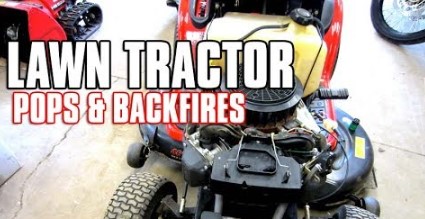
- Faulty spark plugs are a common cause of engine trouble and can often be easily identified by signs such as smoke or misfiring.
- An operator sitting off the seat of their lawnmower or other machinery may not be providing enough weight to operate the machine properly, resulting in strain on the engine and possible failure.
Engine Loses Power
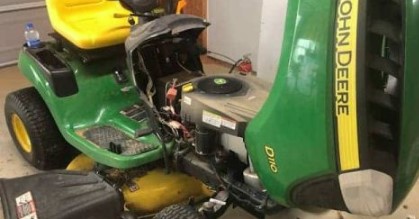
- Engine Overheating: When the engine is running too hot, it can cause serious damage to the vehicle and its components. This is usually caused by a lack of coolant or low levels of antifreeze in the system.
- Too Much Oil in Engine: If too much oil is present in an engine, it can lead to overheating and other problems due to clogging or sludging of internal parts. To avoid this issue, make sure you check your oil regularly and change it as needed.
- Dirty Air Cleaner: A dirty air filter can reduce airflow through the engine, causing reduced fuel efficiency and increased emissions from unburned fuels entering into exhaust systems. Regularly checking your air filter for dirt buildup will help prevent issues like these from occurring.
- Faulty Spark Plug: One common reason for an engine not starting properly is faulty spark plugs that have become worn out over time or are contaminated with deposits from oils and other combustible materials found within engines over time . Replacing these plugs when they fail should be done quickly to ensure optimal performance from an engine's ignition system .
- Travel Speed Is Too Fast For Conditions: Traveling at speeds higher than recommended for road conditions could result in decreased handling capabilities which could put you at risk of accidents due to loss of control on slippery surfaces or poor visibility during bad weather conditions such as rain or snow storms . Make sure you adjust your speed accordingly before hitting the roads!
- Improper Fuel: Using improper fuel (such as diesel instead of gasoline) can cause significant damage to an engine if left unchecked for long periods of time, resulting in costly repairs down the line if not addressed immediately upon realization that something isn't right! Check what type of fuel goes into your car before filling up next time!
Excessive Fuel Consumption
- Choke is not completely open.
Black Exhaust Smoke,
- The air filter needs to be cleaned or replaced due to it being dirty or covered in oil.
- The choke should be adjusted for full engagement.
- The gap between the ignition components needs to be accurately adjusted.
3 Common Electrical Problems for John Deere S240 Mower
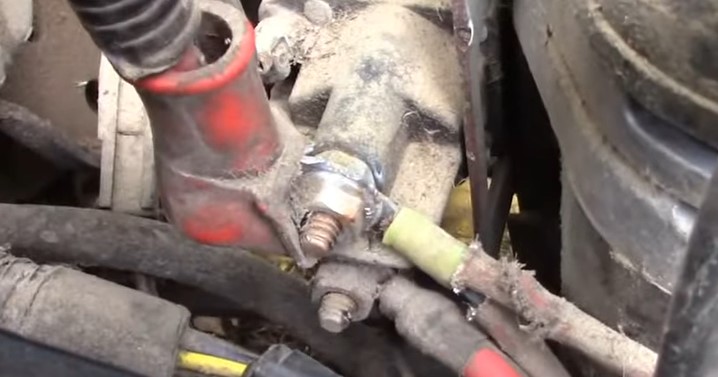
The starter does not function or won't start the engine.
- The brake pedal is not pressed.
- The mower has been activated.
- The battery terminals are corroded.
- The battery has not been charged.
- The transmission is in reverse gear.
- There is a blown fuse.
- Fuse in the starting circuit has been blown—please visit your authorized dealer.
Battery Will Not Charge
- Dead Cells in a Battery can cause a reduction in power, leading to reduced performance and ultimately, engine failure.
- Keeping the battery Cables and Terminals clean is essential for ensuring optimal performance of your car’s electrical system, as dirt can impede the flow of electricity.
- Low Engine Speed or Excessive Idling may indicate that there is an issue with your vehicle's fuel delivery system or spark plugs and should be checked by a professional mechanic if it persists.
Lights Do Not Work
- The light plug has been disconnected.
- A loose or burned out bulb needs to be replaced.
2 Common Machine Problems for John Deere S240 Mower
- Excessive vibration or rattling on a tractor can be caused by worn or damaged attachment drive belts.
- If the traction drive belt is worn or damaged, it may need to be replaced in order to stop the vibration and rattling problem.
- Dirt build up on the drive sheaves can also cause excessive vibration that needs to be cleaned away for proper functioning of the machine parts.
- Blades that are bent out of shape or unbalanced can lead to more vibrations than usual when running equipment, so these must be inspected for any signs of damage and properly balanced as needed.
- Regular maintenance should always include an inspection of all components mentioned above in order to keep your tractor running smoothly and safely over time with minimal vibrations and rattles present during operation
Tractor Will Not Move With Engine Running
- The parking brake is engaged.
- The bypass rod has been removed.
8 Common Mower Problems for John Deere S240 Mower
The discharge chute is blocked.
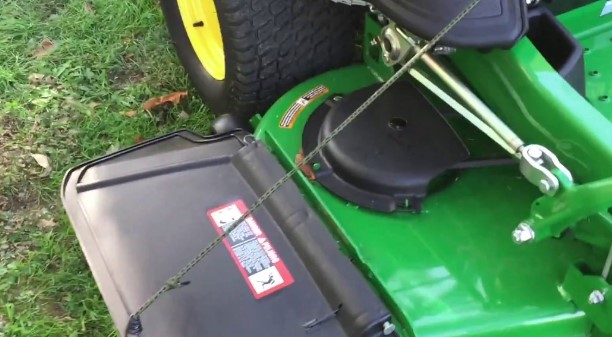
- The travel speed is too high.
- The grass is too long.
- The grass is too wet.
- The engine revolutions per minute are not at their maximum.
- The air flow is restricted.
- The belt has been improperly installed.
Patches Of Grass Uncut
- Travel speed too fast: If you are mowing and notice that you are traveling faster than normal, it is time to slow down. This will ensure a more even cut and help extend the life of your mower deck.
- Engine RPM not at wide open throttle: When the engine is running at lower than optimal RPMs, it can cause a decrease in power output which leads to less efficient performance from your mower deck. Make sure the engine stays at full throttle whenever possible for maximum efficiency and productivity when mowing.
- Mower Deck Needs Cleaning: Keeping your mower deck free of debris is essential for maintaining its performance over time. A good cleaning with a garden hose or pressure washer after every use will keep dirt and grass clippings from building up on the underside of the cutting blades, which can hinder their ability to effectively cut grass
Belt Slipping
- There is debris in the sheaves.
- The belt appears to be worn.
- The tension of the belt is not correct.
Too Much Vibration
- Debris in the Mower Deck or Sheaves can cause a disruption of airflow, potentially resulting in poor performance and reduced lifespan of the machine.
- A Damaged Drive Belt can cause difficulty when operating the mower deck and should be replaced immediately to continue using it safely and effectively.
- Damage to Sheaves or improper alignment of them will lead to an uneven cut across your lawn, as well as extra noise from the vibration caused by them being out of balance with each other.
- Blades that are Out of Balance may produce an inconsistent cut quality due to their inability to remain level when spinning at high speed, leading both increased wear on blades and possible safety hazards for operators nearby
Blades Scalping Grass
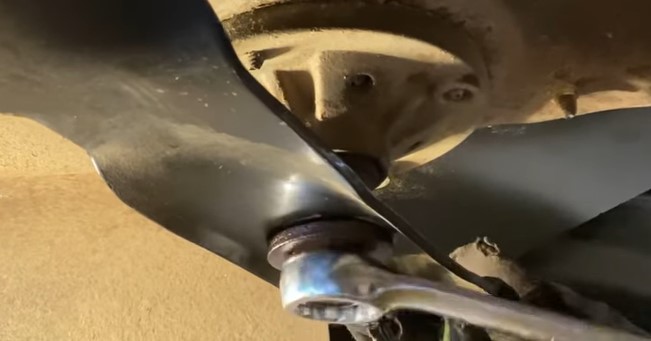
- Decrease the cutting height.
- Adjust the lawn mower wheels properly.
- Slow down the rotation speed.
- Smooth out any ridges in the terrain.
- Ensure you are mowing on an even surface.
- Check tire pressure is at an acceptable level.
Mower Loads Down Tractor
- Engine RPM Too Low: The engine of a mower should be running at the correct speed to ensure proper operation. If the engine is running too slow, it can lead to poor performance and decreased efficiency.
- Travel Speed Too Fast: It is important for operators to adjust their travel speeds when using a mower since operating at higher speeds can cause excessive wear and tear on the machine. Additionally, traveling too quickly can make it harder for an operator to accurately control the cutting path of their mower.
- Debris Wrapped Around Mower Spindles: Care must be taken when operating any type of machinery in order to prevent potential damage or injury from occurring due to wrapped debris around spindles or other parts of a mower's moving components. This can create dangerous situations and impede normal operations if not addressed properly by trained personnel as soon as possible.
Uneven Cut
- The mower deck needs to be leveled.
- Slow down when mowing.
- Sharpen the blades.
- Adjust the mower wheels properly.
- Equalize the tire pressure.
- Don't mow in a clockwise rotation.
Reverse foot pedal depressed, attachment engaged - mower stops.
- The mower is in its normal condition.
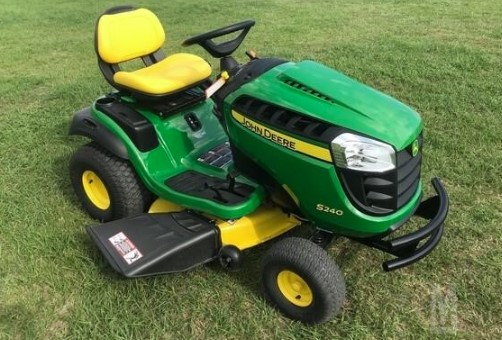
I have a John Deere S240 and have had no major issues so far, but recently I've noticed the performance has been a bit sluggish. After doing some research, I've learned that clogged filters can be a common problem with this model. I checked the filters and sure enough, they were clogged. I cleaned them out and the performance improved significantly.
It's important to remember to regularly check your filters and maintain your John Deere S240. Has anyone else had this problem? What other maintenance tips do you have for this model?